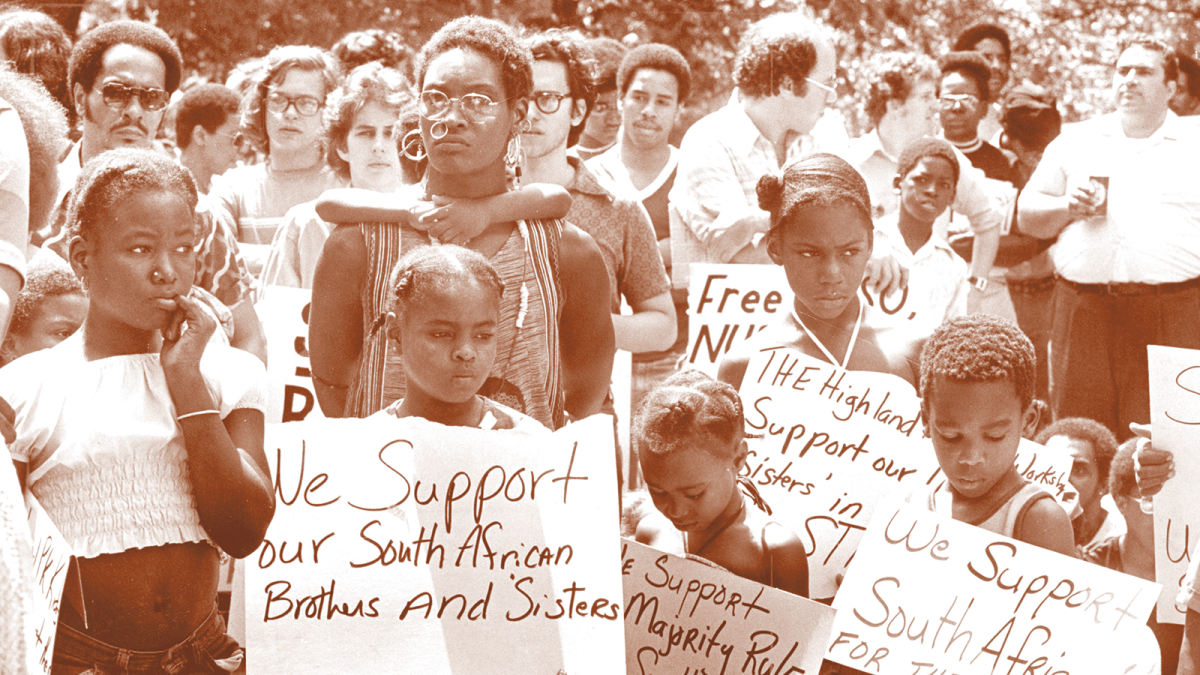“America’s Voices Against Apartheid” commenced its second major exhibition this September at the Kennedy Center. Displayed in the Hall of Nations from Sept. 14 through Nov. 5, the exhibit is the first of many in the project’s tour of the United States.
“America’s Voices Against Apartheid” first launched in Jan. 2019 under the direction of Howard University’s Republic of South Africa Project and the National African American Drug Policy Coalition. The project sought to honor and record the contributions of not only corporations and activists, but also everyday citizens, to the anti-Apartheid movement. Howard University professor Jean Bailey directed the project in the wake of Black Lives Matter protests and a reexamination of racial discrimination in America and abroad. Bailey aimed to help future and current struggles against injustice by documenting this intersection between American and South African history.
A focus of the project is to highlight the bravery of American citizens, particularly Black Americans, in opposing the Apartheid. The regime, which lasted from the late 1940s until the early 1990s in South Africa, incurred heavy international criticism. The United Nations was particularly critical, even spearheading a movement to sanction trade and embargo arms to the country. However, governments in many Western nations struggled to pass comprehensive sanctions, often facing stiff resistance from conservative parties that supported and instituted racial discrimination in their own countries. Although the sanctions were initially vetoed by President Reagan, his veto was overwritten; such a feat would have been impossible without the continued pressure of Black Americans, who according to Bailey during the project’s virtual launch in 2021, “dared to question and challenge the official American government’s misguided and anti-democratic foreign and economic policies.”
She elaborated that “the people said no to the American government’s official representations and took it to the streets, to the banks, to the board rooms, to the trustees, to the corporate headquarters, to the United States government itself and said no to Apartheid.”
This project intends to further emphasize the solidarity formed between the oppressed communities of each nation, as not just a reaction to the Apartheid regime, but as the result of a long history of cultural exchange and mutual support. For these aims, the exhibition foregrounds the Black churches, Black press, Black universities and South African diaspora in America, who recognized the cruelty of the South African regime long before not only other American institutions, but the wider international community as well. Alongside this focus, this exhibition has curated a substantial diversity of stories, cutting across divisions of age, gender and wealth, ranging from celebrities such as Harry Belafonte, Arthur Ashe and Debbie Allen, to the more ordinary Black Americans participating in protests, lobbying or boycotts.
Furthermore, “America’s Voices Against Apartheid” hopes to not only document the past, but to provide insights for the present. The struggle against racial discrimination and injustices is ongoing, with the same injustices echoed throughout history and even persisting to the modern day.
While the movement against Apartheid in South Africa was just one facet of this battle, the lessons learned remain valuable. The project hopes to share these lessons, reminding people to resist oppression regardless of the challenges.











































